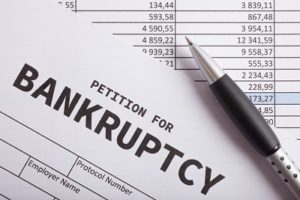 How Bankruptcy Affects Your Retirement Accounts
How Bankruptcy Affects Your Retirement Accounts
One of the most common concerns I hear as a bankruptcy lawyer is, “Will I lose my 401(k) or IRA if I file?” The good news is that in most cases, considering your bankruptcy and retirement accounts shouldn’t cause you anxiety.
In fact, you might be much more protected than you think.
Let’s break it down and talk about what’s protected, what might not be, and how to move forward with confidence.
Why Retirement Accounts Matter in Bankruptcy
You’ve worked hard and saved for years. Whether it’s a 401(k), IRA, pension, or other retirement plan, these accounts are your safety net for the future. The idea of losing them because of overwhelming debt can feel terrifying.
But debt is really scary too. As a result, far too often people panic over their debt and cash out their retirement savings to cover it.
Thankfully, bankruptcy laws were designed to protect people’s futures, even while dealing with your past. The goal is to help you get back on your feet, not to punish you for falling on hard times.
 What Retirement Accounts Are Protected?
What Retirement Accounts Are Protected?
In most cases, your retirement savings are exempt in bankruptcy. This means they’re off-limits to creditors and can’t be taken to pay off your debts. Here’s what’s typically protected:
401(k), 403(b), and Other Employer-Sponsored Plans
A 401(k) is a retirement savings plan offered by employers that lets you save and invest money before taxes are taken out. These are almost always fully protected in both Chapter 7 and Chapter 13 bankruptcy.
It doesn’t matter how much money is in the account or where you are in your retirement timeline — your 401(k) is safe under federal law.
Traditional and Roth IRAs
These funds are similar to 401(k)s and are protected, up to a certain limit.
As of right now, the exemption amount is around $1.5 million per person (adjusted for inflation). Most people don’t come close to that, so your IRA is likely safe.
If you do happen to have more than the limit, you still might have exceptions. There are different rules for SEP IRAs and rollover plans. As you have questions, a qualified bankruptcy attorney can help.
 Pensions and Government Retirement Plans
Pensions and Government Retirement Plans
Military retirement, federal employee pensions, and similar plans are usually protected. So if you’ve served in the military or worked in public service and built a retirement plan through that service, you can breathe a little easier.
Social Security Benefits
These are also protected during bankruptcy, with a catch.
Once the money is deposited into your bank account, it can sometimes get mixed with other funds. Those funds won’t look any different than the rest when considering your income and assets.
That’s why it’s important to keep Social Security money in a separate account if you can.
What Might Not Be Protected?
While most retirement accounts are safe, there are a few situations where you need to be careful:
 Withdrawn Funds
Withdrawn Funds
If you take money out of your retirement account before filing, those funds are no longer protected. Once the money is out of the retirement account, it becomes regular cash or savings—and that could be used to pay creditors in bankruptcy.
So if you’re thinking about cashing out your 401(k) to deal with debt, let’s talk first. Filing for bankruptcy might be the better option – and it could save your retirement.
Non-Retirement Investment Accounts
Accounts like regular brokerage or stock trading accounts don’t count as retirement savings and usually aren’t protected.
You can always speak with your investment company or financial advisor to make sure you understand the difference. And our bankruptcy attorneys can also help you know which accounts might be impacted and why.
 Chapter 7 vs. Chapter 13: What’s the Difference for Retirement?
Chapter 7 vs. Chapter 13: What’s the Difference for Retirement?
Whether you file for Chapter 7 or Chapter 13, your retirement accounts are generally safe, but your overall case will differ:
- Chapter 7 wipes out most unsecured debts like credit cards and medical bills while protecting your retirement accounts.
- Chapter 13 involves a repayment plan based on your income and expenses. You can even continue contributing to your retirement accounts during your repayment plan, as long as it’s reasonable and approved by the court.
Bottom Line: Don’t Touch Your Retirement to Pay Off Debt
This is one of the most important things to remember: Don’t drain your retirement to pay off credit cards, loans, or other debts.
In my decades serving Memphis as a bankruptcy attorney, I’ve seen so many people sacrifice their retirement funds unnecessarily. I can’t tell you how sad it makes me to see folks close to retirement who gave up their savings because of debt. Those are investments that took a lifetime to build, and you have every right to keep them and protect your later years of life.
You have legal protections in place, and filing for bankruptcy can give you a fresh start without sacrificing your future.
 Help with Debt Before Cashing in on Your Future
Help with Debt Before Cashing in on Your Future
Every situation is different, and it’s okay to have questions. If you’re feeling overwhelmed by debt and worried about protecting your retirement, let’s talk.
I’ll walk you through your options, help you understand what’s safe, and guide you toward a solution that lets you move forward—without losing what you’ve worked so hard to build.
Your retirement is meant for your future, not for fixing your past. Let’s make sure you keep it that way. Contact us online today or call 901-327-2100, and let’s figure out the next step together.
Case Inquiry
Yes! I would like to speak with the team at Darrell Castle and Associates.
